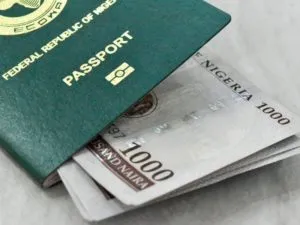
When I first thought about going to Canada, I was both excited and worried about how I would pay for it. How much money do you need to immigrate to Canada? was one of my most pressing questions. This is what we found: the answer is different for each person and each immigration scheme. To give you a full picture of what to expect, this piece will break down the costs of moving to Canada, including some costs you might not have heard of.
How Much Money Do You Need To Immigrate To Canada

Some of the costs that come with moving to Canada are government fees, settlement funds, and other costs. You can plan better and avoid any shocks if you know these costs ahead of time.
Government Fees
Fees from the government are required and change for each immigration scheme. These are some common fees you might see:
- One person can apply for Express Entry for a fee of CAD 1,325, which covers both the processing fee of CAD 850 and the right of permanent residence fee of CAD 500. You need to pay an extra CAD 1,325 for a spouse or common-law partner. Each child who lives with you adds CAD 225.
- Educational Credential Assessment (ECA): Depending on the service, an ECA can cost anywhere from 200 to 400 Canadian dollars. You need to take this test to make sure that your foreign degrees, diplomas, or awards meet Canadian standards.
- Language Proficiency Test: The IELTS test costs about CAD 300 and checks how well you know English. The TEF costs about CAD 440 and tests your French skills. These tests are very important for showing how good your language skills are.
The fingerprints fee is CAD 85 per person or CAD 170 for a family of two or more. There is a fee for fingerprinting and a digital picture.
How Much Money Will You Need to Immigrate to Canada Under Express Entry in 2024?

Canada’s Immigration, Refugees, and Citizenship (IRCC) has stated that Express Entry applicants must show proof of funds starting May 28, 2024. This change affects people looking for jobs through the Federal Skilled Worker Program (FSWP) and the Federal Skilled Trades Program (FSTP). Proof of funds is an important part of the immigration process because it shows that applicants can support themselves and their families in Canada.
By May 27, 2024, candidates in the Express Entry pool must add the new proof of funds to their profiles. Because it doesn’t change the date and time of entry, IRCC has told candidates that updating their profiles won’t change their rank in the pool if there’s a tiebreaker.
Who Needs to Show Proof of Funds?
People who want to apply for the Federal Skilled Worker Program (FSWP) or the Federal Skilled Trades Program (FSTP) must show proof of funds. But if a person applying has a legal job offer and a work permit for Canada, they don’t have to do this. Additionally, people applying through the Express Entry Canadian Experience Class (CEC) do not need to show proof of cash.
If candidates don’t need to show proof of funds, they must upload a letter saying they have a real job offer or are applying under the Canadian Experience Class. This paperwork is necessary to finish the application process.
How to Calculate Settlement Funds?
How much money the application needs for the settlement depends on how many people live in their homes. These people are the applicant, their husband or common-law partner, their children who depend on them, and the children of their spouse or partner. It’s important to count all family members, even if they don’t plan to come to Canada with the candidate.
Here are the new rules for settlement funds that go into force on May 28, 2024:
- For a single applicant, the required amount is CAD 14,690 (previously CAD 13,757).
- For a family of two, the requirement is CAD 18,288 (previously CAD 17,127).
- For a family of three, the new amount is CAD 22,483 (previously CAD 21,055).
- For a family of four, the requirement is CAD 27,297 (previously CAD 25,564).
- For a family of five, it’s CAD 30,690 (previously CAD 28,994).
- For a family of six, it’s CAD 34,917 (previously CAD 32,700).
- For a family of seven, the new amount is CAD 38,875 (previously CAD 36,407).
- For families with more than seven members, each additional member requires CAD 3,958 (previously CAD 3,706).
What Can You Show as Proof of Funds?

IRCC says that official letters from banks or other financial institutions are the only kind of proof of funds that is acceptable. These letters need to have certain information, like:
- This includes the bank or institution’s address, phone number, and email address.
- The applicant’s name and all current debts, including loans and credit card debts.
- The account numbers for all of your checking and savings accounts and investing accounts.
- The amount in each account right now, as well as the average balance over the last six months.
These standards help keep Canada’s immigration system honest by making sure that the process is open and accountable. Candidates for Express Entry must make sure they meet these updated standards for proof of funds to avoid delays or being kicked out of the application process.
Miscellaneous Expenses
You might not think about these other costs at first, but they are necessary for a smooth transition:
- Medical check: A medical check can cost anywhere from 200 to 300 Canadian dollars per person. An IRCC-approved panel physician must do this test.
- Police Clearance Certificate: Getting a police clearance certificate costs between CAD 30 and CAD 50, but the exact amount varies from country to country. You need these papers to show that you have never been in trouble with the law.
- Translation fees: If your papers aren’t in English or French, you’ll need verified translations, which can cost anywhere from CAD 20 to CAD 40 per page. You might also need to get some papers notarized.
- Costs of Travel: The price of a plane ticket to Canada can change a lot based on the season and the city in which you live. A trip from Nigeria to Canada can cost anywhere from CAD 1,000 to CAD 1,500 for one way.
- Housing for the first few weeks: Depending on the city, temporary housing can cost between CAD 1,000 and CAD 1,500 per month. You should plan for this in your budget until you find a stable place to live.
I carefully planned for these costs when I chose to move to Canada. Setting up a clear budget plan helped me deal with things much more easily. Take a close look at how I kept track of the prices and what I learned along the way.
Making a Budget
Step one was to make a specific budget. I made a list of all the possible costs and set aside money for each one. This meant putting money aside for things like government fees, settlement funds, and other costs.
Making Use of a Budget Checklist
A financial plan helped me keep track of my spending and make sure I didn’t forget anything. This template kept me organized and gave me a good idea of how ready I was financially.
Template for an Immigration Financial Checklist
- List All Government Fees: Be sure to include application fees, ECA fees, language tests, and fingerprint fees.
- Figure Out Settlement Funds: Make sure you have the right amount for your family size.
- Estimate Other Expenses: Include costs for medical checks, police certificates, translations, travel, and the first place to stay.
- Keep track of your saves and expenses: Make sure to keep your checklist up to date with your progress in saving money and any payments you’ve made.
- Plan for the Unexpected: Put some extra money aside in case you need it.
I was able to keep track of all the costs of my move to Canada by using this financial checklist. This made the process easier and less stressed.
Making use of a money list
A financial plan helped me keep track of my spending and make sure I didn’t forget anything. This template kept me organized and gave me a good idea of how ready I was financially.
Template for an Immigration Financial Checklist
- List All Government Fees: Be sure to include application fees, ECA fees, language tests, and fingerprint fees.
- Figure Out Settlement Funds: Make sure you have the right amount for your family size.
- Estimate Other Expenses: Include costs for medical checks, police certificates, translations, travel, and the first place to stay.
- Keep track of your savings and expenses: Make sure to keep your checklist up to date with your progress in saving money and any payments you’ve made.
- Plan for the Unexpected: Put some extra money aside in case you need it.
FAQs On How Much Money Do You Need to Immigrate To Canada
What are the hidden costs of moving to Canada?
Some hidden costs are having papers translated and notarized, paying more for travel, and paying more for your first apartment in a big city. Also, make a plan for how you will pay your bills for the first few months until you find work.
How can you save money while you’re going through the immigration process?
To save money, book your flights during off-peak times, use services like Airbnb to find short-term housing, and use the Internet to study for language tests for free or very little cost. Getting police certificates and medical tests early can also save you money on rush fees.
Is it Possible to Get into Canada for Less Money?
The government sets minimum payment amounts, but getting a job quickly and carefully planning your budget can help you handle your money better. The minimum amount of money needed to make sure the change goes smoothly is important, though.
Key Takeaways
- Make a budget and plan ahead of time: Start saving money and making plans for your move early on.
- Know All the Costs: Know about the costs of government fees, compensation funds, and other things.
- Use a financial checklist to keep track of your spending and savings and stay on top of things.
- Be ready for “hidden costs”: plan for the costs of translation, travel, and the first place to stay.
- Be flexible: Be ready for costs that come up out of the blue and have a backup plan.
Bottom Line
For a smooth movement to Canada, it’s important to know how much money you need to immigrate. You can make your move to Canada go well if you carefully plan, make a budget, and know all the costs that might come up. Are you ready to take the next step toward your dream of living in Canada? What questions do you have about the process of immigration that has to do with money?
You can make your dreams of living and working in Canada come true by staying informed and using the tools that are out there.
Related Articles
- Is Canada Still Accepting Immigrants From Nigeria In 2024? All You Need To Know
- What Are the Requirements to Immigrate to Canada: Your Complete Checklist
- What is the Easiest Way to Move to Canada From Nigeria? Your Shortcut to a New Life
- FULLY FUNDED SCHOLARSHIP IN CANADA: No IELTS 2024
- 5 Hot Cake Sites to Find Jobs in Canada 2024 (Updated)
Leave a Reply